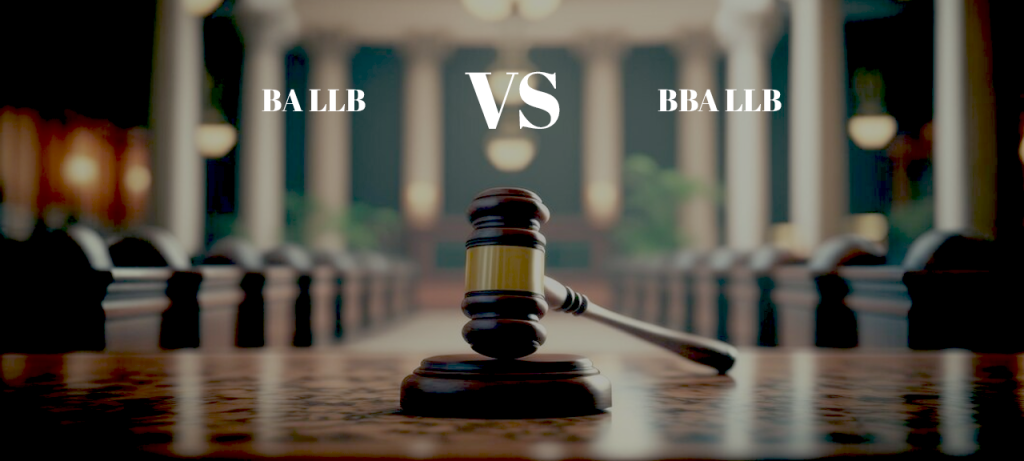FAQs
What is BA LLB (Hons)?
BA LLB (Hons) is a Professional degree course in a 5 years undergraduate program with a Bachelor of Arts and Bachelor of Law. The course offers students a deeper understanding of social sciences, humanities, and the legal system.
Is BA LLB (Hons) better or LLB?
What is the scope of BA LLB (Hons)?
The scope of BA LLB(Hons) is extensive. Graduates can pursue careers as lawyers, legal advisors, corporate counsels, judges, legal consultants, or work in law firms, government agencies, international organisations, NGOs, and academia. Additionally, it opens doors to diverse fields like business, finance, journalism, politics, and public administration, where legal expertise is highly valued.
What are the various subjects taught in BA LLB (Hons)?
There are many subjects in BA LLB as per their semester examinations, some of which include Constitutional Law, Criminal Law, Contract Law, Family Law, Criminology Property Law, Administrative Law, International Trade Law, Intellectual Property Law, Legal Research, Legal Writing, and more.
Is BA LLB(Hons) merit or entrance based?
CMR University (CMRU) is a prestigious educational institution known for its merit-based admissions process. It considers academic performance and achievements as the primary criteria for admission to its various programs, including BA LLB (Hons). By focusing on merit, CMRU aims to provide equal opportunities to deserving candidates and create a diverse and talented student community.
Is CLAT necessary for BA LLB(Hons)?
CLAT which is held in December is not necessary for admissions to BA LLB (Hons) programs. Students can appear for other exams like LSAT & CMRUAT. CMRUAT is held in May, while LSAT is conducted 2 times in a year, i.e January-December & June April-June secession.
Why Choose BA LLB Hons?
Choosing BA LLB(Hons) offers a unique blend of both law and liberal arts subjects, providing a comprehensive understanding of legal principles and broader social contexts. It equips you with analytical, communication, and problem-solving skills, opening doors to diverse career opportunities in law firms, corporate sectors, judiciary, advocacy, and public service.













